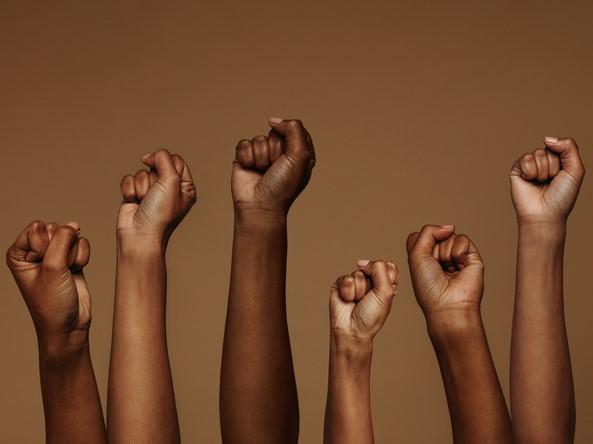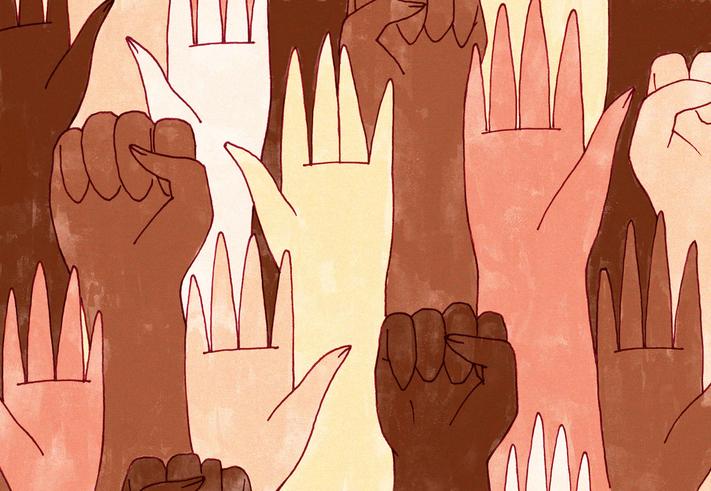Academia needs to change. This is the refrain I have heard frequently since the summer of 2020, during which the world watched with horror as George Floyd was mercilessly killed by US police. Far from being immune to the hyper-speed of social media, universities started “taking a look at themselves”, “learning” and “listening” in an effort to rapidly address centuries of systemic biases and internalised colonisation that more than likely still affect a large part of the student population in the UK.
Changes appeared to be happening at an incredible rate. Universities unlocked funding for scholarships, changed their historically colonial branding, returned ornaments and statues to their countries of origin and/or openly supported the Black Lives Matter (BLM) movement. The issue with wanting to fix racism overnight is that many of these actions and initiatives are grandiose and make for good PR campaigns, but they are completely disconnected from the needs of Black students and staff. Of course, any step taken towards abolishing colonialism and promoting diversity is necessary. But most of them are also not sufficient. Does sending out a BLM-supporting email, garnishing university websites with pictures of ethnic minorities and returning a statue to Nigeria or Benin secure the future and well-being of a socio-economically disadvantaged student or a racialised member of staff?
- For diverse communities to thrive, we need intersectional policies and practices
- What we can learn from Black women academics in the UK
- How to be an anti-racist ally on the university campus
Despite the representation statistics across students and staff in Russell Group universities, most state that they listen closely to and care for the well-being of their ethnic minority (EM) populations. Nonetheless, many of the actions and initiatives to tackle diversity issues are framed with a US perspective, often disregarding the specific difficulties EMs face in the UK. This often results in a “one framework for all” situation, which was very clearly exemplified in the difference in treatment between the murder of George Floyd and the police shooting of Chris Kaba, an unarmed British Black man.
As far as I know, only Imperial College and the University of Greenwich published statements regarding his death, but events of this kind pose a threat to life in and out of campus for Black students in the UK, where police officers might not often carry guns, but they are not immune to the long-lasting systemic biases of a state-controlled institution. It was probably easier to criticise the systems of our neighbours across the pond than to be realistic about the lived experiences of EMs in the UK. It seems that introspection is a hard-to-swallow pill for Britain.
Many of the EDI programmes I have been involved in during my time in British academia were white-led. What I mean by this is that, despite the inclusion of students and staff of African descent in EDI workgroups, their hopes and ideas seldom reach the top of the hierarchy, and the (mostly white) senior staff are responsible for deciding which opportunities get funding and which do not. I have myself often argued for fully funded scholarships with realistic living wages and specific budgets to be allocated to Black African and African-Caribbean students. These perhaps idealistic scholarships were often considered to be too costly or too focused on Black students by mostly white governing boards, who make decisions through legal teams whose primary concern seems to be the legal line between positive discrimination and affirmative action, to the point where the Black livelihoods they are trying to improve often get lost in the fine print.
For example, the notable gap in African-Caribbean representation at university compared with white students or other EM groups seems to be difficult to address without entering legal grey areas: assigning money to one group could be interpreted as discriminatory to other groups, with the emphasis that money has to be accompanied by targeted support in order to constitute affirmative action, which is legal, and not positive discrimination, which is illegal.
The magnitude of the EDI task at hand leads to a lot of frustration on all sides, and conversations inevitably shift from the initial intent of progress towards the alleviation of the “white guilt” people involved in EDI feel when the programmes they worked towards do not meet the needs of Black students. Such guilt is clearly expressed when funding is scarce and when few scholarships are ultimately created after years of discussion, but it is also reflected in the subtler interactions between disillusioned Black advisers and socially conscious white staff. For instance, the exact language used to refer to students of African descent is always a major element in every EDI conversation, turning what should be a representation and diversity concern into a purely academic exercise.
I find it important at this point to clarify that I of course hold no resentment towards white people who take EDI issues to heart, not least because, as a mixed-race Black man, that would mean resenting half of myself. I do, however, feel that most EDI work is not individually tailored to specific ethnic groups but rather painted in broad strokes, meaning it tries to tend to the needs of as many minorities as possible, all at once.
In many instances, I was told that funds initially allocated for helping fix Black representation in academia would, sooner or later, have to be shared across diversity campaigns for other minorities, too. Effectively, we are rapidly getting drawn into the realm of what I call “the oppression Olympics”, in which different ethnicities have to fight for attention in order to see their initiatives funded. Of course, diversity for one should always be diversity for all, and I would love to see specific budgets allocated to each under-represented group, rather than all being bundled up under the same monolith.
In my view, change in academia must begin with an honest confession: there is too much academic red tape for any change to be effective. Steps towards stronger EDI have to stem from a genuine intent to support and promote ethnic minorities rather than from guilt or the desire for good press. A group of staff and students in the department of bioengineering at Imperial College London understood that and managed to create the James West scholarship in less than two months. In an extremely short amount of time and with very little administrative red tape, this offers fully funded PhD scholarships to three students of Black and mixed-Black heritage. In its structure, this scholarship was not any different from any other support initiatives undertaken by other universities in the UK. Its objective, however, was unapologetically radical: we want to welcome more Black students to Imperial College.
The James West scholarship was initiated with a voluntary census of the PhD students in the department of bioengineering in order to get a clear picture of the magnitude of under-representation in the cohort. The scholarship committee (mostly composed of lecturers, academic staff and PhD students) approached the head of department with the bleak African heritage representation statistics. Very few questions were asked, very little paperwork was needed and the funds to cover the programme for three students per year over a period of five years were almost instantly allocated. The committee then focused on organising mentorship activities and seminars, all aimed at providing support and improving well-being for the future cohort of students of African heritage. The scheme received overwhelming support from within and outside the department but was entirely designed, implemented and funded by the department alone, without the involvement of higher academic hierarchy.
This specific scholarship proved that, with the right intentions and by actually listening to the needs and concerns of Black students and staff, life-changing scholarships can be offered to a cohort that will not only be an active part of the next scientific advances, but will also passively inspire new generations of students who, for the first time perhaps, will be able to tell themselves “I too, belong.” If the department of bioengineering at Imperial College can do it, what is everyone else waiting for?
Andrea E.L. Attipoe completed his PhD in bioengineering at Imperial College London. With a diverse heritage encompassing Togolese and Italian roots, he played a vital role in establishing and leading Imperial College’s Black Doctoral Network. Presently, Dr Attipoe applies his expertise to the field of medical technologies.
If you would like advice and insight from academics and university staff delivered direct to your inbox each week, sign up for the THE Campus newsletter.




comment